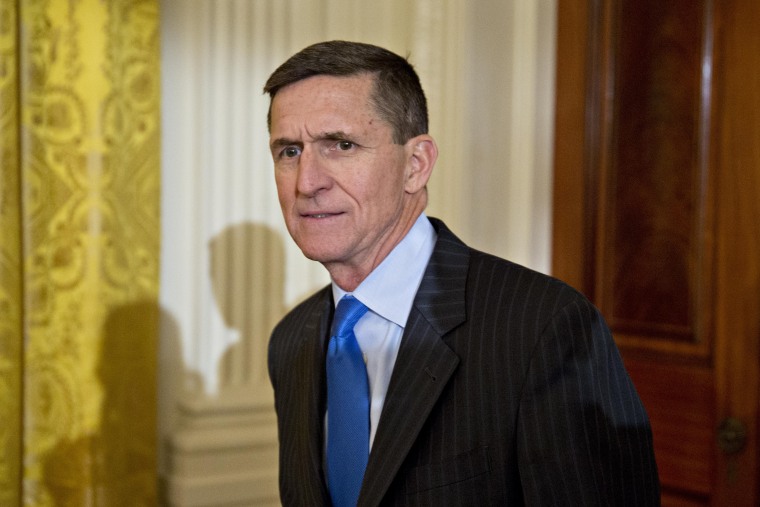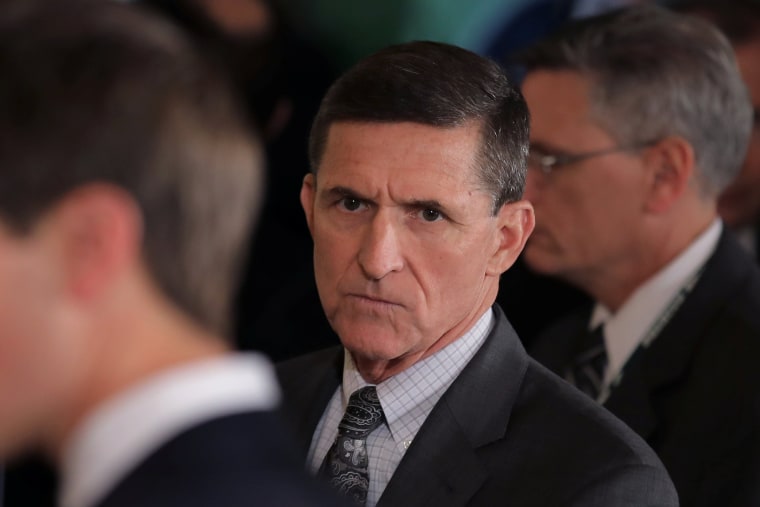Former National Security Adviser Mike Flynn has told the Senate Intelligence Committee he is willing to be interviewed about the Trump campaign's possible ties to Russia in return for immunity from prosecution, a Congressional official told NBC News.
The Wall Street Journal reported Thursday that Flynn had told the FBI and Congress he was willing to be interviewed in exchange for a grant of immunity.
Flynn's lawyer, Robert Kelner, confirmed in a statement that discussions had taken place with the House and Senate Intelligence Committees, and said "General Flynn certainly has a story to tell, and he very much wants to tell it."
Kelner said, however, that "out of respect" for the committees, he and his client would not be commenting on the details of their discussions with the committees.
Kelner then accused the media of being "awash with unfounded allegations, outrageous claims of treason, and vicious innuendo."
"No reasonable person, who has the benefit of advice from counsel, would submit to questioning in such a highly politicized, witch hunt environment without assurance against unfair prosecution."
Trump tweeted about Flynn's request early Friday, referring to the case as a "media witch hunt."
In September, Flynn told Chuck Todd on Meet the Press, "When you are given immunity that means you've probably committed a crime." He was talking about aides to Trump's opponent in the general election, Hillary Clinton.
Flynn, a retired Lt. Gen. who headed the Defense Intelligence Agency before being pushed out by the Obama administration, advised the Trump campaign beginning in 2015. He served as President Trump's national security adviser for three weeks before resigning for what the Trump administration said was misleading Vice President Mike Pence about his contacts with Russian Ambassador to the U.S. Sergey Kislyak.
Flynn was paid $45,000 plus expenses to speak at the 10th anniversary gala of the RT television network in Moscow in December 2015, while he was already an adviser to Trump. The U.S. considers RT, which is state-sponsored, to be a propaganda outlet.
Prior to Trump's inauguration, on the day that President Obama announced sanctions against Russia as punishment for interfering in the U.S. election, Flynn spoke on the phone with Russian Ambassador Kislyak.
A U.S. intelligence official told NBC News that Flynn had discussed the hacking-related sanctions with Kislyak prior to Trump's inauguration. Flynn told the Washington Post he didn't discuss sanctions with Kislyak, then said he couldn't remember whether they had discussed sanctions.


